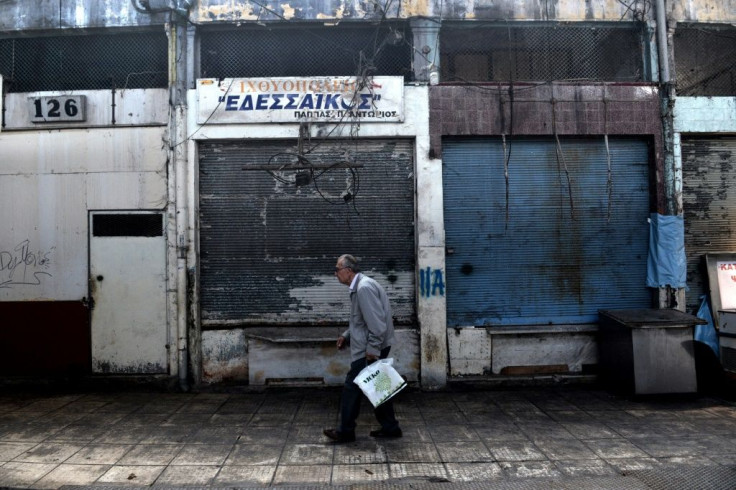Hit By Pandemic, Eurozone Sees Ghost Of The Debt Crisis
European governments fear the Covid-19 pandemic will punish the most fragile economies the hardest, widening gaps between EU member states and reviving memories of the eurozone debt crisis.
Much has changed in the European economy since the crisis a decade ago, but recent data shows that the countries that suffered the most back then are still the most vulnerable today.
Eurozone finance ministers, meeting by videoconference, discussed their worries Monday, with soaring public debt and stagnant wage growth topping their lists of concerns.
Greece, Spain and Italy all share towering debt levels but, to make matters worse, they are also service-based economies highly dependent on tourism that has ground to a halt because of the pandemic.
"The crisis is deepening existing imbalances, which had been gradually receding before COVID-19," the EU's economic affairs commissioner Paolo Gentiloni told reporters after the talks.
But the sun-kissed destinations on the Mediterranean are not the only countries under the gun. France and Belgium are also about to see debt levels soar to levels not seen in peacetime.
Frustrating to many of these countries is the relative success of the bloc's economic main player, Germany, which has avoided the worst of the pandemic crisis thanks to a steady flow of exports to China.
Complaints about the divergence between richer countries and the hard-hit poorer ones has been a recurring refrain during the pandemic that in Europe began with scenes of tragedy in Italy, where citizens bitterly complained of a lack of solidarity from their European partners.
That grievance only grew as death rates rose and lockdowns spread in Spain and other countries, leading to the historic decision last July for the EU governments to jointly pump 750 billion euros ($900 billion) into the economy.
The injection of cash, which will go to European priorities such as facing the climate emergency or developing new technologies, is not expected to be felt until later in the year.

In the meantime, debt-spending runs rampant in Europe.
According to the EU's forecasts from November, France's public deficit will reach 10.5 percent of gross domestic product (GDP) for the end of 2020 and hit 12.2 percent in Spain -- compared with six percent in Germany.
In more typical times, these levels of overspending would sent financial markets into a panic, threatening the solvency of the countries and the future of the euro single currency.
This time however, the European Central Bank has put the markets at ease by buying up much of the public debt, essentially snuffing out the problem for the foreseeable future.
Thanks to this intervention, a country as deeply indebted at Italy has 10-year borrowing rates at just 0.65 percent while others even have negative rates, meaning lenders pay for the privilege of lending the money.
Some economists believe that the ECB's intervention -- and the steady expansion of vaccinations helping to reopen the economy -- will be enough to get Europe back on track.
Whatever the length of the recovery, few want to see a return to balanced budget orthodoxy imposed by Germany and other northern partners in the debt-crisis years.
"We had two crises in 10 years, that are normally once in a century," said Joao Leao, the finance minister for Portugal, which currently hold the EU's rotating presidency.
Even though it is a sensitive issue, "we have to think about our rules", he added referring to the bloc's limits on debt and deficits that are firmly defended by Germany and others.
For now, those rules have been suspended as EU countries are left to spend freely and keep their economies out of depression.
"Let's hope our policymakers keep their cool -- and the pedal to the metal -- until the economies are properly back on their feet," wrote Erik Nielsen, Chief Economist at Unicredit in a note to clients.
© Copyright AFP 2024. All rights reserved.





















